Wensen Feng
Image Denoising via Multi-scale Nonlinear Diffusion Models
Sep 21, 2016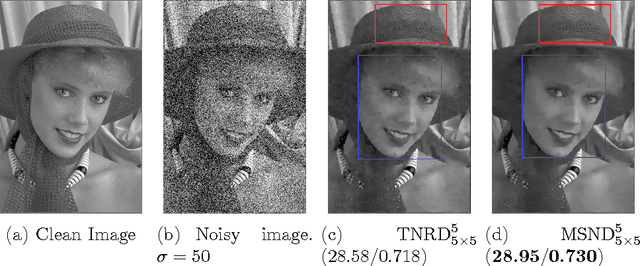
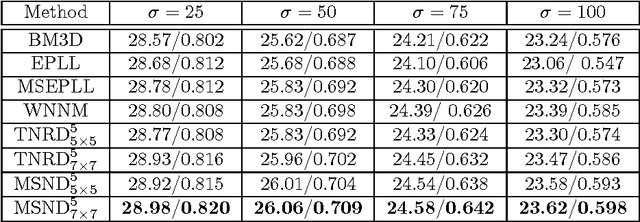
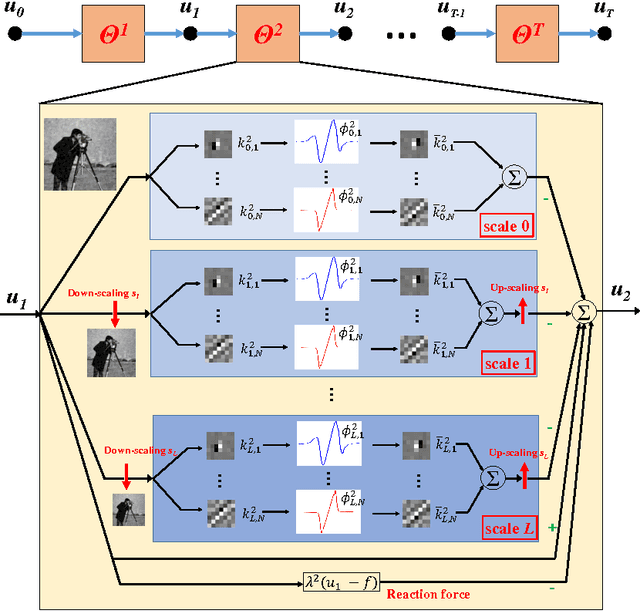
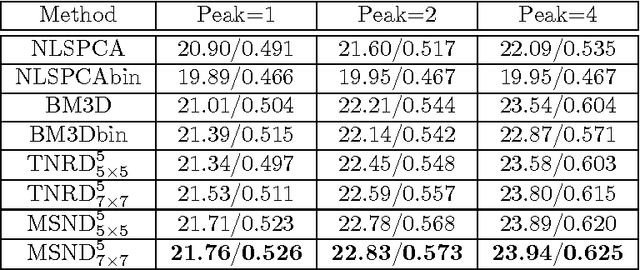
Abstract:Image denoising is a fundamental operation in image processing and holds considerable practical importance for various real-world applications. Arguably several thousands of papers are dedicated to image denoising. In the past decade, sate-of-the-art denoising algorithm have been clearly dominated by non-local patch-based methods, which explicitly exploit patch self-similarity within image. However, in recent two years, discriminatively trained local approaches have started to outperform previous non-local models and have been attracting increasing attentions due to the additional advantage of computational efficiency. Successful approaches include cascade of shrinkage fields (CSF) and trainable nonlinear reaction diffusion (TNRD). These two methods are built on filter response of linear filters of small size using feed forward architectures. Due to the locality inherent in local approaches, the CSF and TNRD model become less effective when noise level is high and consequently introduces some noise artifacts. In order to overcome this problem, in this paper we introduce a multi-scale strategy. To be specific, we build on our newly-developed TNRD model, adopting the multi-scale pyramid image representation to devise a multi-scale nonlinear diffusion process. As expected, all the parameters in the proposed multi-scale diffusion model, including the filters and the influence functions across scales, are learned from training data through a loss based approach. Numerical results on Gaussian and Poisson denoising substantiate that the exploited multi-scale strategy can successfully boost the performance of the original TNRD model with single scale. As a consequence, the resulting multi-scale diffusion models can significantly suppress the typical incorrect features for those noisy images with heavy noise.
Poisson Noise Reduction with Higher-order Natural Image Prior Model
Sep 19, 2016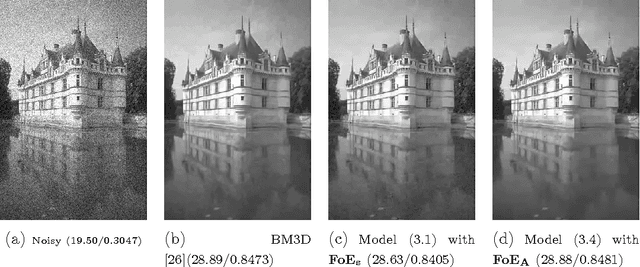

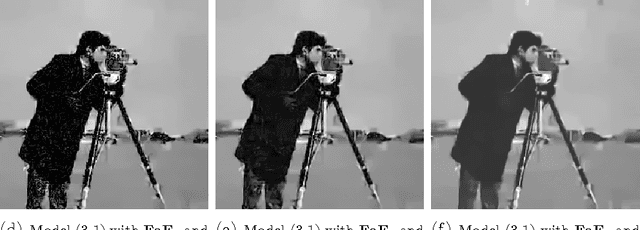
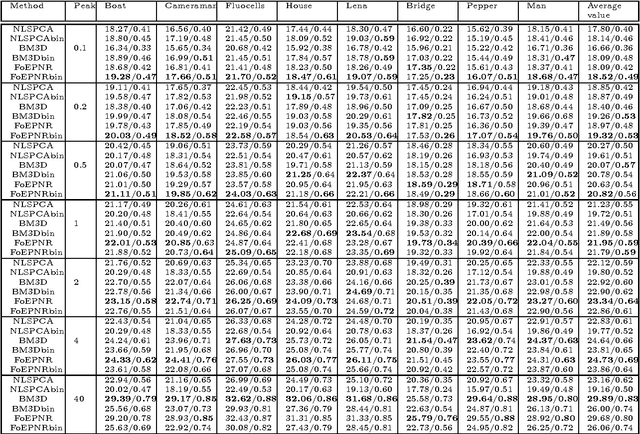
Abstract:Poisson denoising is an essential issue for various imaging applications, such as night vision, medical imaging and microscopy. State-of-the-art approaches are clearly dominated by patch-based non-local methods in recent years. In this paper, we aim to propose a local Poisson denoising model with both structure simplicity and good performance. To this end, we consider a variational modeling to integrate the so-called Fields of Experts (FoE) image prior, that has proven an effective higher-order Markov Random Fields (MRF) model for many classic image restoration problems. We exploit several feasible variational variants for this task. We start with a direct modeling in the original image domain by taking into account the Poisson noise statistics, which performs generally well for the cases of high SNR. However, this strategy encounters problem in cases of low SNR. Then we turn to an alternative modeling strategy by using the Anscombe transform and Gaussian statistics derived data term. We retrain the FoE prior model directly in the transform domain. With the newly trained FoE model, we end up with a local variational model providing strongly competitive results against state-of-the-art non-local approaches, meanwhile bearing the property of simple structure. Furthermore, our proposed model comes along with an additional advantage, that the inference is very efficient as it is well-suited for parallel computation on GPUs. For images of size $512 \times 512$, our GPU implementation takes less than 1 second to produce state-of-the-art Poisson denoising performance.
Fast and Accurate Poisson Denoising with Optimized Nonlinear Diffusion
Oct 10, 2015
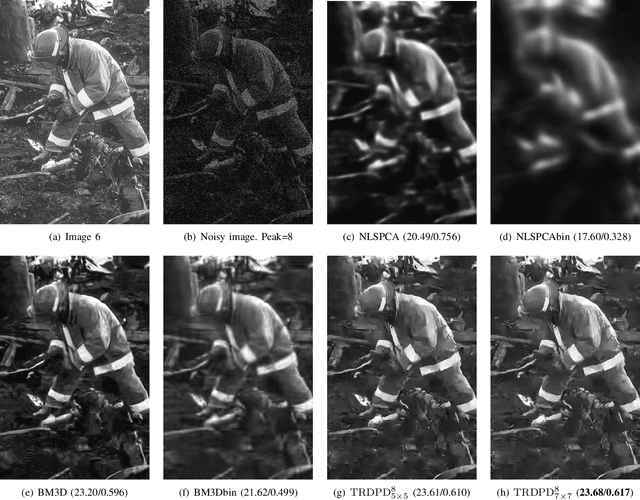
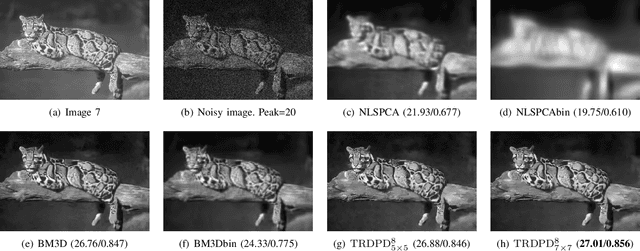
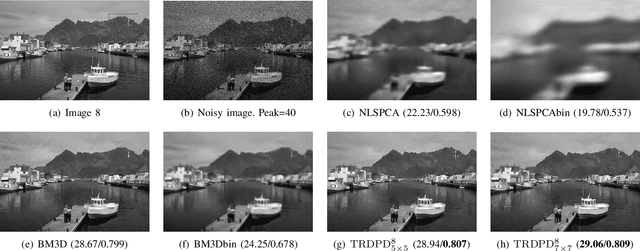
Abstract:The degradation of the acquired signal by Poisson noise is a common problem for various imaging applications, such as medical imaging, night vision and microscopy. Up to now, many state-of-the-art Poisson denoising techniques mainly concentrate on achieving utmost performance, with little consideration for the computation efficiency. Therefore, in this study we aim to propose an efficient Poisson denoising model with both high computational efficiency and recovery quality. To this end, we exploit the newly-developed trainable nonlinear reaction diffusion model which has proven an extremely fast image restoration approach with performance surpassing recent state-of-the-arts. We retrain the model parameters, including the linear filters and influence functions by taking into account the Poisson noise statistics, and end up with an optimized nonlinear diffusion model specialized for Poisson denoising. The trained model provides strongly competitive results against state-of-the-art approaches, meanwhile bearing the properties of simple structure and high efficiency. Furthermore, our proposed model comes along with an additional advantage, that the diffusion process is well-suited for parallel computation on GPUs. For images of size $512 \times 512$, our GPU implementation takes less than 0.1 seconds to produce state-of-the-art Poisson denoising performance.
A higher-order MRF based variational model for multiplicative noise reduction
Jul 07, 2014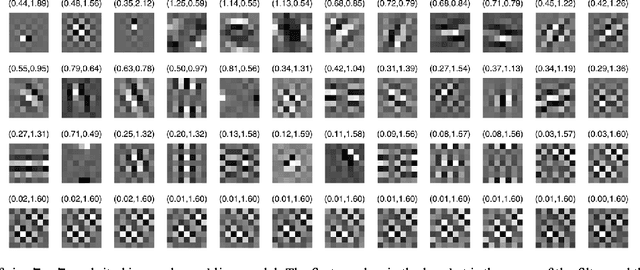
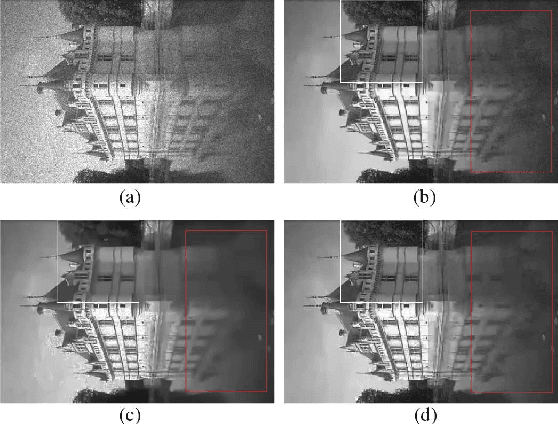

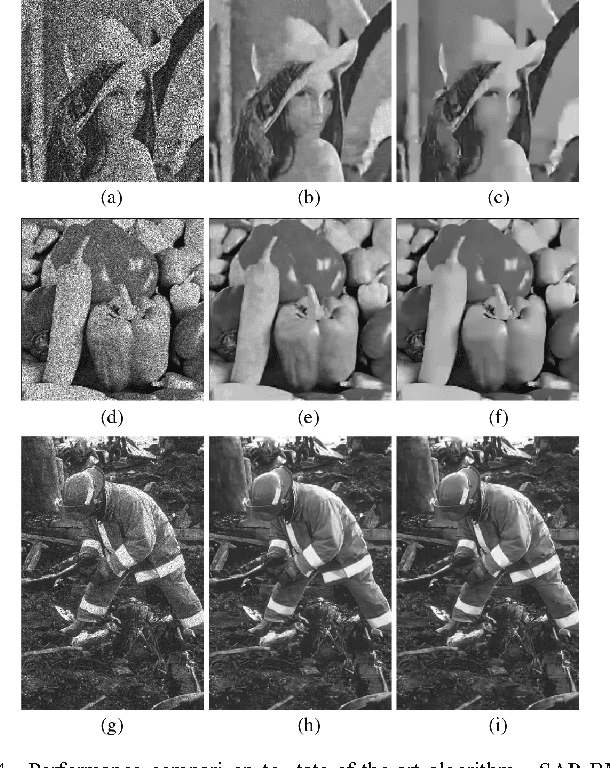
Abstract:The Fields of Experts (FoE) image prior model, a filter-based higher-order Markov Random Fields (MRF) model, has been shown to be effective for many image restoration problems. Motivated by the successes of FoE-based approaches, in this letter, we propose a novel variational model for multiplicative noise reduction based on the FoE image prior model. The resulted model corresponds to a non-convex minimization problem, which can be solved by a recently published non-convex optimization algorithm. Experimental results based on synthetic speckle noise and real synthetic aperture radar (SAR) images suggest that the performance of our proposed method is on par with the best published despeckling algorithm. Besides, our proposed model comes along with an additional advantage, that the inference is extremely efficient. {Our GPU based implementation takes less than 1s to produce state-of-the-art despeckling performance.}
 Add to Chrome
Add to Chrome Add to Firefox
Add to Firefox Add to Edge
Add to Edge